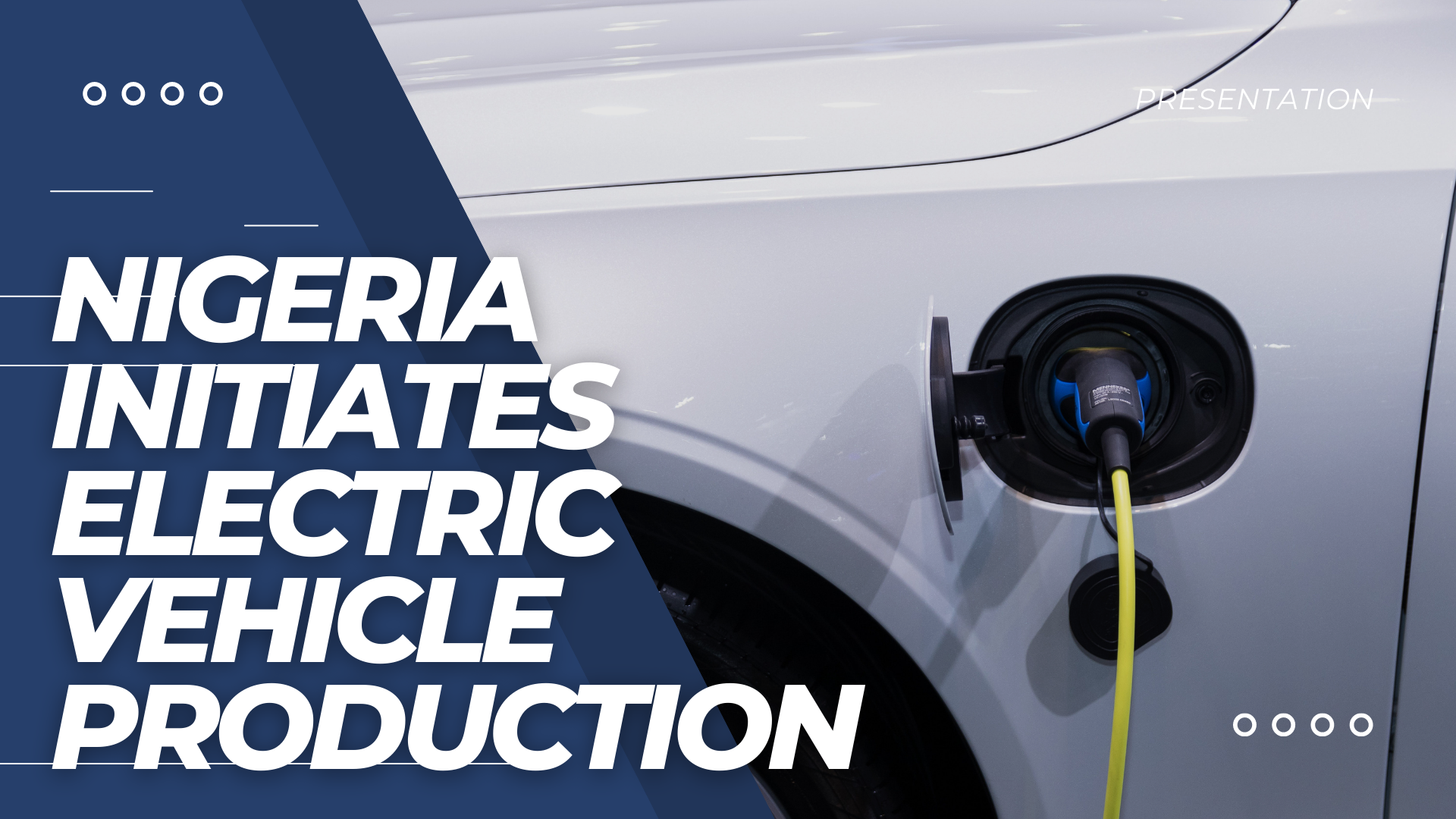In a visionary move aimed at embracing sustainable and cutting-edge technology, the Nigerian Government has unveiled plans to embark on the development and production of electric vehicles (EVs) under the ambit of its Automotive Policy. The momentous announcement was made during the Validation Workshop of the Draft National Action Plan for the Development of EVs in Nigeria, held in the capital city of Abuja. The workshop, hosted by the esteemed National Automotive Design and Development Council (NADDC), sought to consolidate the nation’s position as a frontrunner in the realm of Vehicle Electrification.
The EV Development Plan: An Outline of Aspirations and Objectives
Join our WhatsApp ChannelThe Permanent Secretary of the Ministry of Industry, Trade, and Investment, Dr. Evelyn Ngige, delivered a compelling discourse during the workshop, expounding upon the transformative potential of the EV sector in Nigeria. Dr. Ngige highlighted the paradigm shift, declaring that the development of EVs is no longer a distant prospect; it has arrived in Nigeria, demanding unequivocal embrace and commitment.
Crucial Aspects of the EV Development Plan:
Underpinning the developmental trajectory of EVs in Nigeria is an all-encompassing strategy encompassing various essential elements:
1. Incentives and Regulatory Framework:
The plan outlines a framework of incentives and regulations intended to propel the widespread adoption of EVs in the country. This amalgamation of fiscal and policy incentives aims to stimulate both consumers and manufacturers, fostering an environment conducive to EV expansion.
2. Infrastructural Requirements:
Realizing the full potential of EVs mandates the establishment of robust infrastructural support. Crucial components such as charging stations, training centers, and capacity-building initiatives are meticulously addressed in the plan, seeking to fortify Nigeria’s readiness for a seamless transition to electric mobility.
3. Identification of Relevant Stakeholders:
An imperative aspect of the plan is the identification and engagement of relevant stakeholders who will collaboratively contribute to the development and expansion of the EV ecosystem in Nigeria. By forging partnerships across industries and disciplines, the nation aspires to amplify the impact of its EV endeavors.
Validation: Paving the Way for a Comprehensive National Action Plan
The Validation Workshop convened by NADDC served as a pivotal juncture in the formulation of a comprehensive national action plan for EV development in Nigeria. Dr. Ngige, cognizant of the significance of this milestone, urged all stakeholders and participants to critically assess and scrutinize the draft document. By subjecting the plan to rigorous examination, Nigeria seeks to ensure that the resultant policy on EVs achieves international standards of excellence.
The Wholehearted Support from Government Agencies:
The National Agency for Science and Engineering Infrastructure (NASENI) echoed its unwavering commitment to the electric vehicle policy, asserting that all facets of the federal government should unite to bolster its successful implementation. NASENI pledged collaboration with NADDC to facilitate the establishment of efficient solar charging infrastructure, a vital component in ensuring seamless EV operation.
Investment Policies and the Automotive Development Plan: A Coordinated Vision
Earlier this year, in a landmark decision, the Nigerian Government approved the Nigeria Investment Policy Plan (NInP) and embraced a new National Automotive Industry Development Plan (NADIP) spanning the years 2023 to 2033. This transformative automotive development plan heralds a seamless transition from conventional combustion engines to solar-powered electric propulsion, epitomizing progress beyond the preceding 2013 automotive industry development plan.
The Significance of the NADIP:
Minister of Industry, Trade, and Investment, Otunba Adeniyi Adebayo, emphasized that the 2023-2033 NADIP is a strategic leap, bolstering the remarkable achievements realized thus far in Nigeria’s automotive sector. The comprehensive plan is poised to deliver unprecedented fiscal and non-fiscal incentives, attracting investment from manufacturers, investors, and developers, as well as fostering collaboration among key stakeholders.
Conclusion:
The Nigerian Government’s unequivocal commitment to venturing into the domain of electric vehicle production marks a momentous stride toward sustainable and innovative transportation solutions. The Validation Workshop and the comprehensive national action plan seek to orchestrate a harmonious symphony of endeavors, bringing forth a future where Nigeria not only pioneers the adoption of EVs but also sets a precedent for sustainable automotive development on the global stage.

















Follow Us